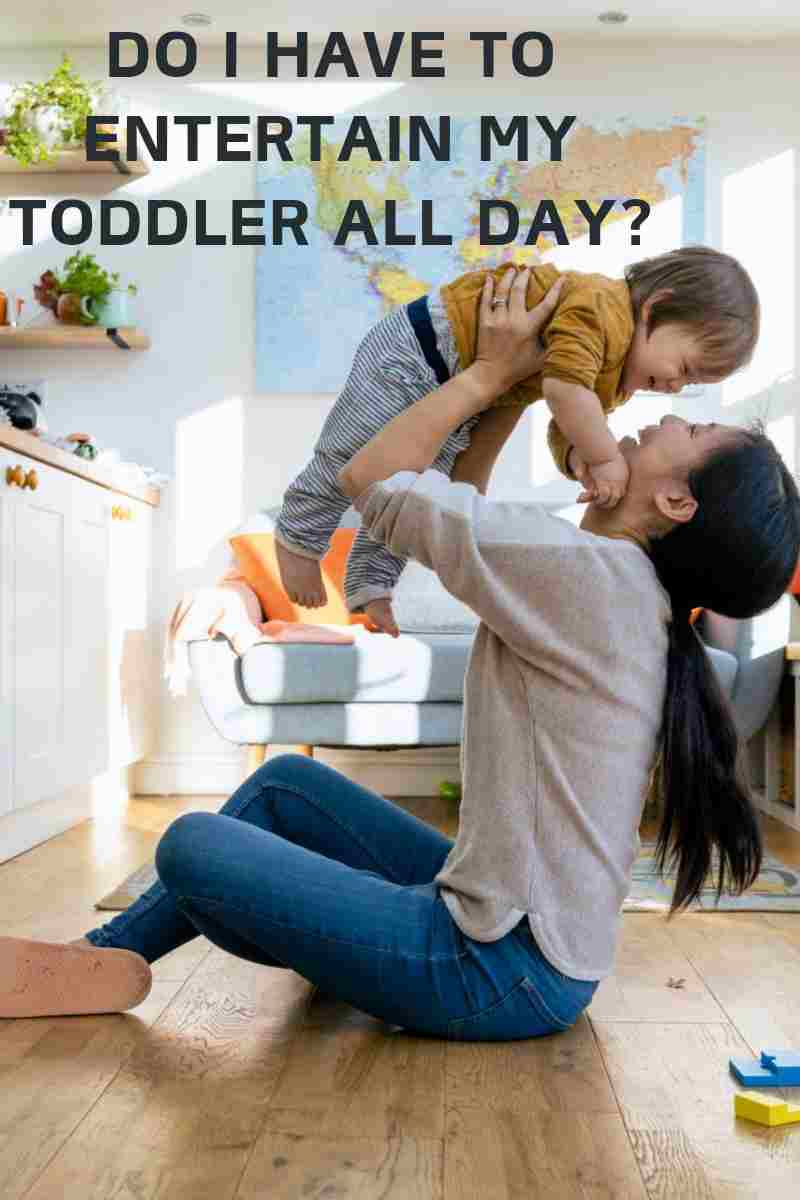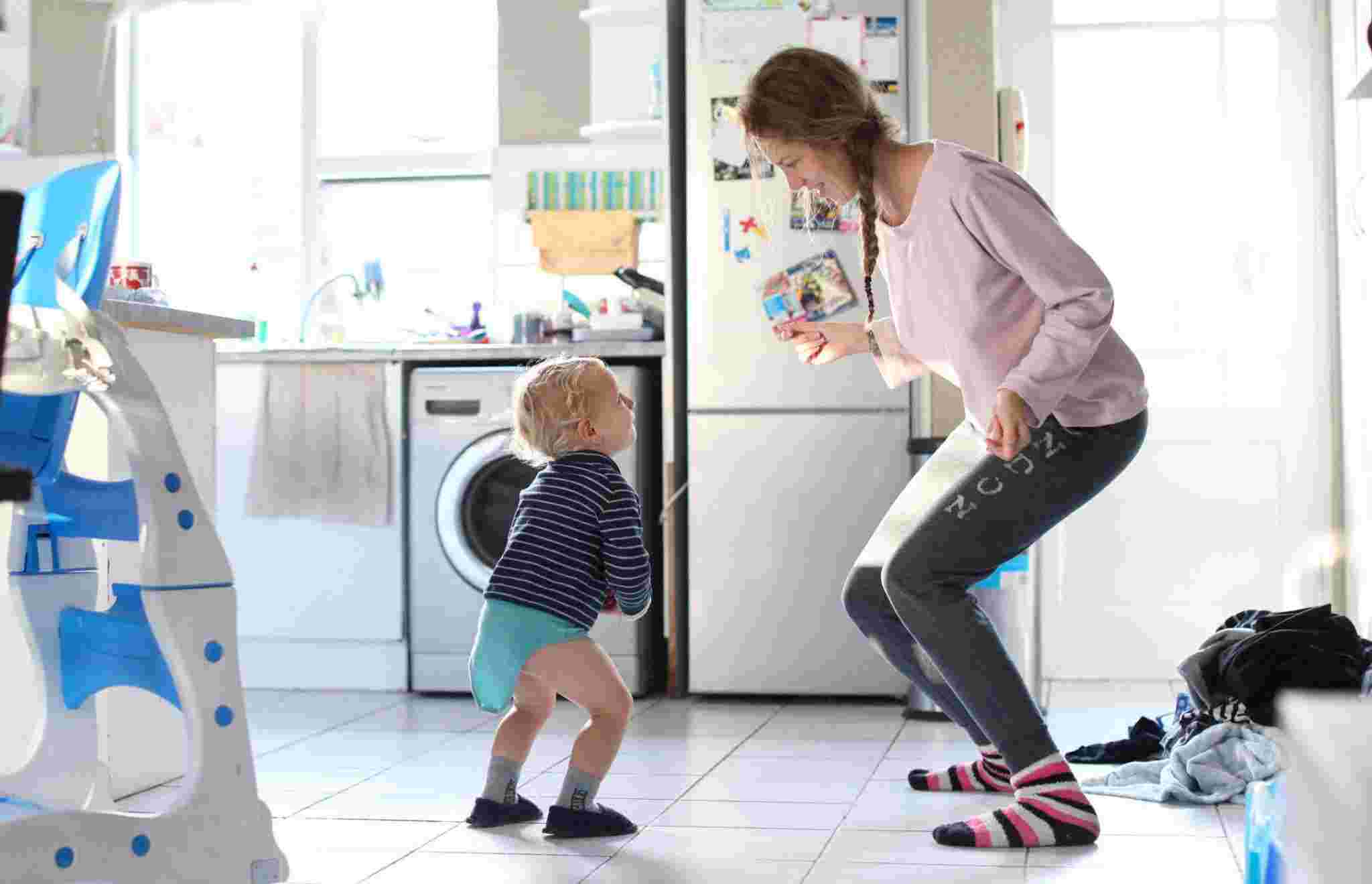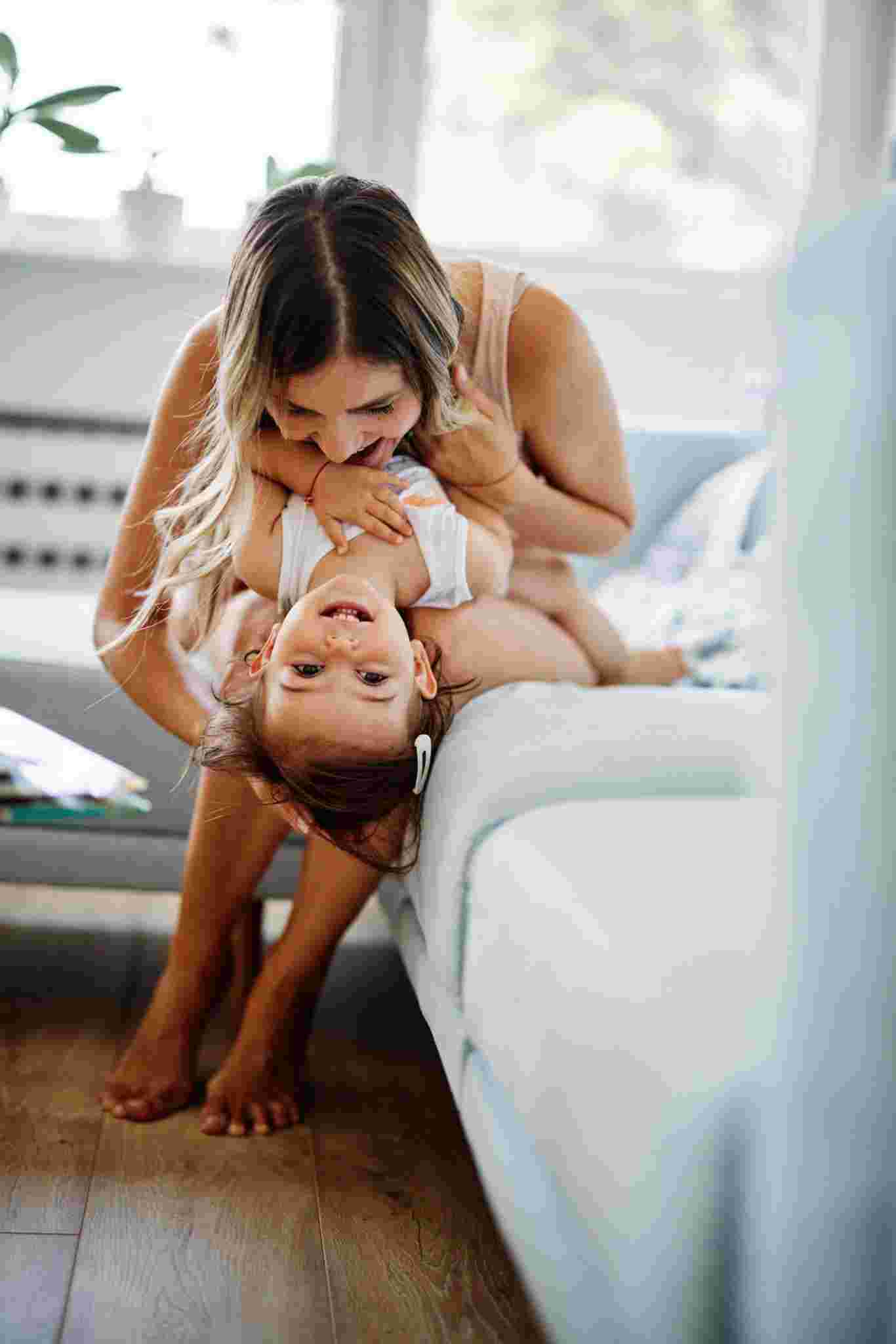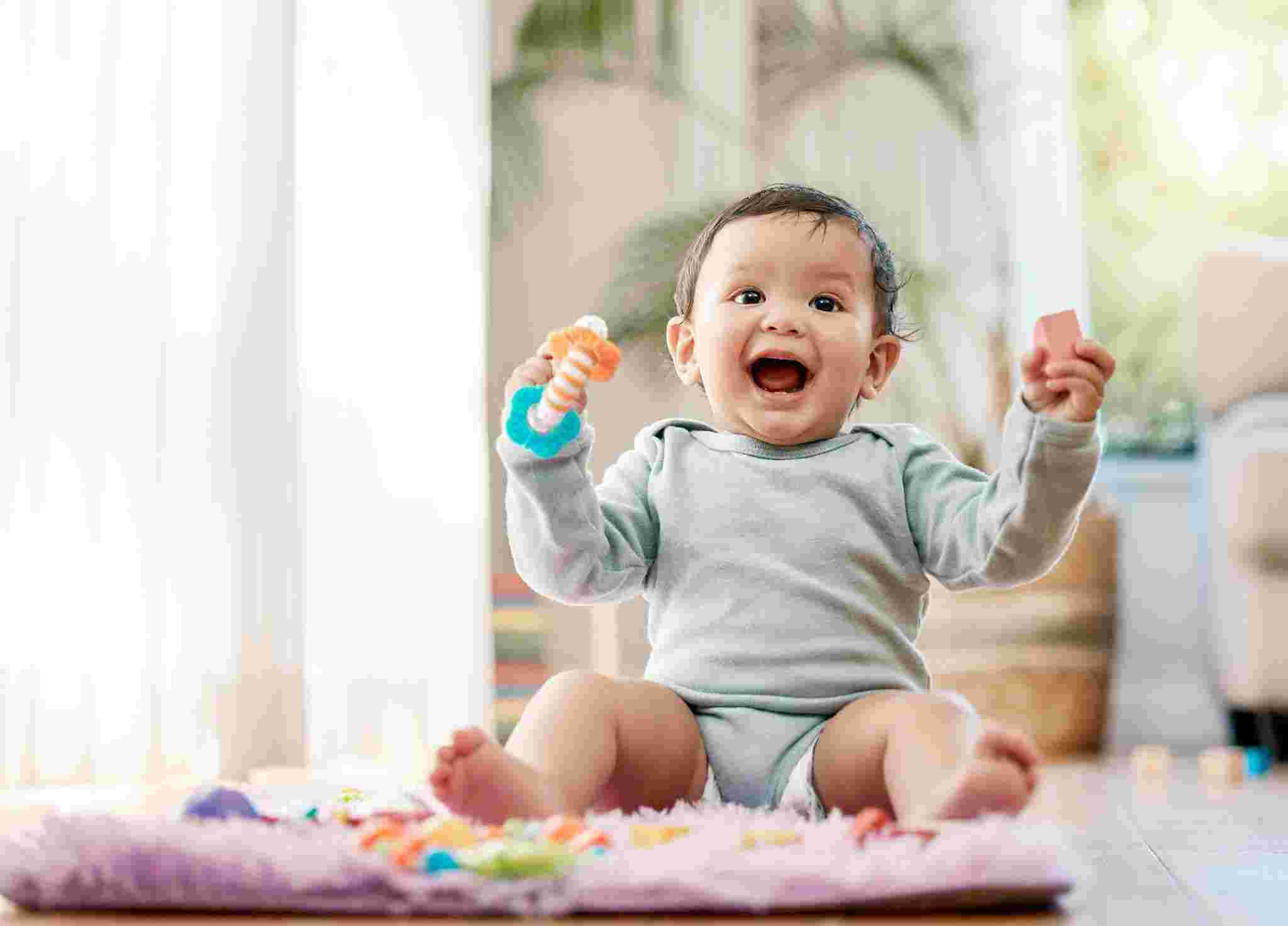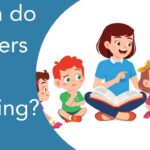In the fast-paced world of parenting, the question often arises: “Do I have to entertain my toddler all day?” Balancing their development and your own responsibilities can be a challenge.
This article focuses on the importance of fostering independent play, setting a healthy routine, and finding a middle ground between active engagement and allowing your toddler to explore on their own.
Discover practical tips and insights to create a stimulating yet balanced environment for your child’s growth and your peace of mind.
Do I have to entertain my toddler all day?
The answer is no. While it’s important to engage and interact with your toddler, you don’t necessarily need to entertain them all day long.
Toddlers benefit from a mix of structured and unstructured playtime, as well as opportunities for independent exploration.
Structured activities, such as reading, Puzzles, art, and sensory play, can help with their development.
Unstructured playtime, where they have the freedom to explore their surroundings and use their imagination, is also crucial.
Engaging with your toddler is important for their social, emotional, cognitive, and physical development.
However, it’s also important to find a balance that allows them to learn and explore on their own.
You can create a routine that includes periods of playtime with you, as well as times when they can play independently or with other children.
Remember, it’s okay for your toddler to experience some boredom or frustration. These moments can encourage them to problem-solve and develop creativity.
Offering a variety of activities and rotating toys can help keep things interesting without feeling like you have to constantly entertain them.
Here’s a breakdown:
1. Developmental Stages:
Toddlers are in a critical stage of development where their brains are rapidly forming connections. Engaging activities can stimulate their cognitive, emotional, and physical growth.
Kindly read:
- How do I get my child to stop eating junk food? Explained
- What does it mean when a child is overly affectionate? Explained
2. Learning through Play:
Play is their primary mode of learning. It helps them understand the world around them, develop problem-solving skills, enhance creativity, and improve fine and gross motor skills.
3. Language Development:
Interacting with him through conversation, storytelling, and reading books is crucial for their language development. It builds their vocabulary, comprehension, and communication skills.
4. Socialization:
Spending time with your toddler helps them learn about relationships, emotions, and social interactions. Playdates, group activities, and family interactions contribute to their social development.
5. Physical Activity:
Toddlers have boundless energy and need physical activity for healthy growth. This can include walks, visits to the park, or simply playing in the backyard. Playtime, outdoor exploration, and simple exercises help develop their muscles, coordination, and spatial awareness.
6. Routine and Structure:
Providing a structured daily routine helps them feel secure and understand expectations. It can also make transitions smoother and reduce anxiety.
7. Independent Play:
Encouraging independent play is essential. Toddlers can explore their surroundings, play with toys, and engage in imaginative play on their own. This fosters creativity, problem-solving skills, and a sense of autonomy.
8. Quality Time:
Spending quality time with your toddler builds a strong parent-child bond, boosting their self-esteem and emotional well-being. Engaging activities create positive memories and experiences.
9. Screen Time:
While limited screen time can be educational, it’s essential to balance it with real-world interactions and activities that promote physical, cognitive, and social development.
10. Rest and Relaxation:
While you should engage your toddler in activities, it’s also important to provide opportunities for rest and relaxation. Naps and quiet time allow them to recharge and process new information.
11. Self-Directed Learning:
Allow them to explore their interests. Provide them with age-appropriate books, toys, and activities that align with their curiosity.
12. Learning Opportunities:
Everyday tasks like cooking, cleaning, or gardening can be learning experiences for them. Involving them in these activities fosters skills and provides entertainment.
13. Free Play:
Allow unstructured playtime where they can choose their activities. This helps them develop decision-making skills and learn to entertain themselves.
14. Structured Activities:
Incorporate structured activities like reading books, simple arts and crafts, or educational games. These activities can be short and focused, providing your toddler with new experiences and skills.
Remember that toddlers have varying attention spans, and their needs change throughout the day. Balance is key—mix structured activities with moments of independent exploration and downtime.
The goal is to provide a supportive and enriching environment that promotes your toddler’s development while also giving you some moments of rest.
Do I have to entertain my baby all the time?
The answer is no, you don’t have to entertain your baby constantly. Babies also benefit from moments of independent play and self-discovery.
Providing a balance between active interaction and allowing them to explore their surroundings fosters their cognitive and motor development.
As babies grow, they learn to entertain themselves through activities like looking at colorful objects, grabbing toys, or observing their surroundings.
However, regular interaction and responsive care are essential for their emotional and social development.
Engaging in activities like talking, singing, reading, and playing together helps build a strong parent-child bond and supports their overall growth.
It’s crucial to be responsive to your baby’s cues for interaction, but it’s also okay to give them opportunities to explore and play on their own, promoting a healthy sense of independence.
How many hours a day should I play with my toddler?
It’s recommended to spend around 1 to 2 hours of quality playtime with your toddler each day.
However, this can vary depending on their age, individual needs, and your family’s schedule.
You should be flexible and adjust based on your child’s interests and needs. Also, balance this with other activities like napping, eating, and independent play.
Every child is different, so adapt the amount of playtime to suit your toddler’s needs and temperament.
The quality of the time you spend together matters more than the quantity, so focus on engaging and interactive experiences during your playtime together.
How many minutes a day should you play with your toddler?
You should spend at least 30 minutes to an hour of focused playtime with your toddler each day.
This interaction helps with their development, cognitive skills, and emotional bonding.
However, remember that quality matters more than quantity – engaging in meaningful and interactive activities can make the most of this time.
Focus on interactive and engaging activities that stimulate their imagination, creativity, and problem-solving skills. These interactions help build a strong foundation for their learning and growth.
It’s important to engage in various types of play, such as imaginative play, physical activities, and sensory exploration, to support their overall growth and learning.
However, every child is unique, so adapt the duration based on your toddler’s interests, attention span, and energy levels. Quality and variety of interactions matter more than a strict time limit.
How much playtime does a baby need?
Babies require a lot of sleep and playtime varies depending on their age. Newborns sleep around 16-20 hours a day, gradually reducing to about 12-14 hours by 3-6 months.
Playtime for infants includes short periods of gentle interaction and tummy time.
As they grow, playtime becomes more interactive and can last for several hours a day, focusing on sensory exploration, tummy time, and age-appropriate toys.
Always follow your baby’s cues and consult your pediatrician for specific guidance.
At what age should a child be able to entertain themselves?
Children’s ability to entertain themselves can vary widely based on their individual personalities, development, and circumstances.
Around the age of 3 or 4, many children start to develop some degree of independent play and may be able to engage in activities on their own for short periods of time.
However, each child is unique, and some may take longer to develop this skill. Encouraging imaginative play, providing age-appropriate toys and activities, and gradually increasing the duration of independent playtime can help foster a child’s ability to entertain themselves.
In conclusion of today’s question of the day, do I have to entertain my toddler all day, while it’s important to engage and interact with your toddler, you don’t have to entertain them constantly throughout the day.
Allowing for independent play, structured activities, interactionand a healthy balance of can foster their development and creativity, while also giving you moments to attend to your own tasks and well-being. Remember, quality interaction matters more than quantity.
